Behind the scenes: Trust staff on responding to coronavirus
BBC News went behind the scenes at Charing Cross and St Mary’s hospitals to interview staff during the coronavirus pandemic, demonstrating the amazing responsiveness of the NHS as we expand capacity rapidly to meet patient needs. Meet our staff interviewed by BBC’s Fergal Keane.
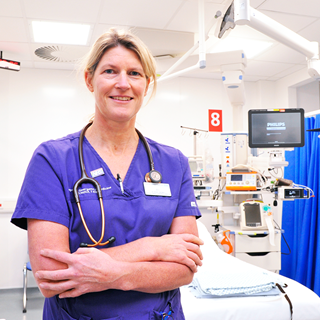
Dr Ali Sanders, clinical director for urgent care and emergency medicine
“As clinical director for urgent care and emergency medicine across the Trust, my role has involved a lot of planning in a very short time. This has been an incredible team effort. We’ve reconfigured whole departments, expanded our critical care knowledge, worked in partnership with primary care and mental health services to redesign clinical pathways and created brand new roles in a matter of a few short weeks.
I’ve put a lot of time into ensuring all our team understand the personal protective equipment (PPE) rationale for each of our areas in some detail as this is understandably an area of great anxiety. Being armed with the knowledge to protect yourself appropriately — by doing the basics of donning and doffing (putting on and taking off PPE) well, being empowered to risk assess individual situations by understanding the science and ensuring we all play our part in preserving this vital equipment — has kept our team in control of the situation and helped to keep us calm and feeling prepared.
We’ve seen a reduction overall in the number of people coming to our emergency departments. This could be because during 'lockdown' they are not out and about as much resulting in less requirement for some aspects of urgent and emergency care services. But I am worried people may be feeling scared to come to hospital and staying away when they should be seeking help. We really want to encourage people to come to hospital as normal if emergency care is needed, because we’re open, business as usual. We have put a lot of work into reconfiguring our departments and into our infection control processes to reduce the chance of any hospital acquired infections.
In emergency medicine we are of course used to difficult clinical situations and also we are used to dealing with different ways of working such as in major incidents.This pandemic is different from anything we’ve dealt with before in many ways and because it is affecting the whole country at the same time. We’re all really grateful for the clap for carers every Thursday – it’s great to have the country come together and appreciate the incredible NHS but after a conversation with my son we think it should really be clap for key workers as there are so many roles who have been vital during this time, not just healthcare professionals.
I feel lucky to be able to work during this time, and do think a lot about those who are unable to work, or in vulnerable situations. My son’s school is still open for children of key workers. The relative normality of work and school, in amongst a time of such uncertainty for so many, has been important for us.”
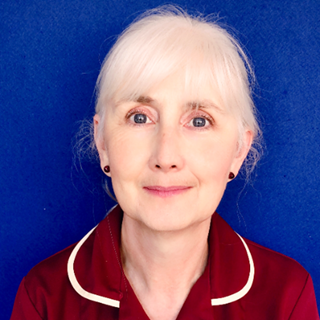
Dolores Parr, matron, St Mary’s Hospital
“As a matron, a huge part of my role is to look after the staff on the ward – making sure they have their tea breaks and get some lunch. In my whole career I’ve never experienced anything of this scale but this is what we as nurses are trained for.
It’s been challenging, of course. We went from a surgical ward to a ward looking after elderly patients with coronavirus and other health issues in around 24 hours. But, that was four weeks ago, now we’re settled into it and everything is in place for us to do our job – we have the personal protective equipment we need.
We’re really being looked after by the outside world too with lots of donations – hot food, gifts, snacks, essential items – that really keeps us going.
My message for the outside world – please follow the Government advice and stay at home. Please don’t put our resources under more stress by not following the rules.”
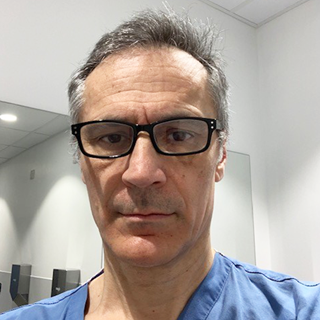
Serge Miodragovic, clinical trials manager, Western Eye Hospital
“Normally, I’m the clinical trials manager at Western Eye Hospital. However, most clinical trials have been put on hold so I had a lot of downtime to support other areas. Currently, I’m a ward helper at St Mary’s Hospital.
My role on the ward is asking the staff 'what can I do to help?' I carry out cleaning and disinfecting duties and keep the staff hydrated. It’s really rewarding to be supporting and helping in a meaningful way.
When I first stepped foot on the ward it was a sobering experience. I was instantly overwhelmed by the expertise and confidence of the clinical staff, they know exactly what they are doing and that has a positive psychological effect on you.
The ward I work on has patients who have coronavirus. Many of whom are recovering and will be discharged home but unfortunately some are not so lucky and they are transferred to another ward for more one-to-one care. Seeing patients recover and go home is the most moving part of the role.
I’ve been so inspired by the doctors and nurses. My daughter told me she was really proud of me but I don’t feel like a hero. In fact, many of the doctors and nurses I’m working with don’t feel like heroes, if you ask them they say they are ‘just doing their job’.”
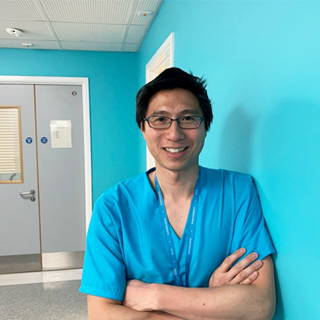
Dr Ernie Wong, consultant respiratory physician, St Mary’s Hospital
“On our unit we’re treating patients with coronavirus using continuous positive airway pressure (CPAP) – which means applying a mild air pressure through a face mask to help keep their airways open.
The patients our team are looking after are quite poorly, but we are providing them with assistance to breathe and we’re starting to see some really promising outcomes. We know that some patients are responding to CPAP therapy. However, evidence is still emerging and unfortunately it seems that CPAP does not benefit everyone, so we’re trying to evaluate its benefits and limitations.
I am a respiratory consultant, specialising in asthma, and so lots of things I’m doing day to day are similar for me to the usual, as much as they can be at this unprecedented time. The nurses, junior doctors and healthcare assistants I work with have well and truly risen to the challenge and are doing an incredible job. They know everything about their patients and provide so much support – everything from constantly monitoring oxygen levels through to helping patients connect with their families through technology at a very difficult and scary time for them. I would also like to thank our cleaners and volunteers who work really hard to make our working environment as good as possible.
We’re all facing a new set of challenges and have had to adapt our ways of working – for example, wearing full PPE creates some barriers for communication and means we have to think carefully about when we enter and exit the ward to ensure responsible use of PPE is balanced with the care required by our patients. We’ve used technology to help overcome this and communicate from inside the unit to our colleagues supporting from outside when we need to.
The CPAP ward was the endoscopy unit only a few weeks ago so it’s amazing to see what we have been able to achieve to respond to this challenge. The whole team has pulled together and is working towards a common goal - to provide the best care for our patients."
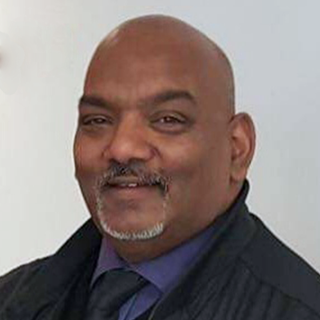
Nick Jaikaran, patient
“I came to hospital with symptoms that I thought were a result of severe dehydration and I’m so grateful to the doctors here, who noticed that my oxygen levels were not what they should be.
It was a bit daunting to find out that I had coronavirus but I’ve been overwhelmed by the support I’ve received here. I’ve been having CPAP treatment at St Mary’s, which has helped to keep my airways open and get more oxygen to my lungs. As a result of my treatment, I’m improving every day and am now recovering on one of the wards. I’m hoping to go home in the next few days.
I’m a renal engagement officer for Falck at the Trust and it’s been a big eye opener to see things as a patient, especially during the coronavirus pandemic. Something I’ve been really struck by is the way that absolutely everyone has come together. It doesn’t matter who it is, I’ve not seen any hierarchy – doctors, nurses and all the staff are all pitching in with everything they can to make sure that their patients are cared for.
It’s been hard not to be able to see my family and we all know that a little bit of TLC goes a long way. I've been so touched to witness the nursing team connecting families together by technology at times when it's really mattered and making sure that people aren't alone when they need support the most. I’ve experienced a lot of TLC and I’m really grateful for that – just sitting with a patient to have a chat, hold their hand and reassure them means so much.”


